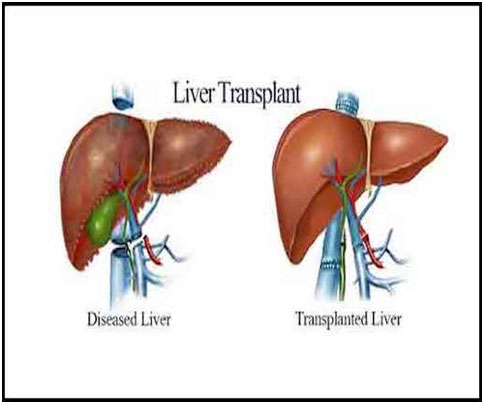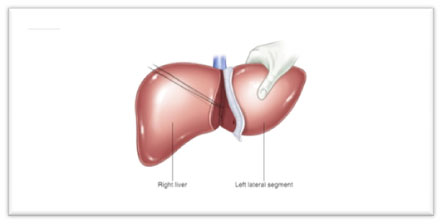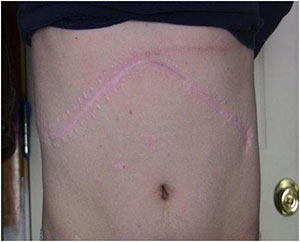Liver transplant is a treatment option for people with a chronic liver failure which cannot be treated or controlled by other treatments. Liver transplant is also a way out for people with liver cancer. It is a surgical procedure where doctors either transplant a part of someone’s healthy liver or transplant the entire liver from a donor, who is recently deceased. We have attempted to answer a few of the most commonly asked questions.
When do doctors recommend liver transplant?
A patient has to undergo a liver transplant when their liver no longer functions adequately to keep them alive. A liver transplant is sometimes a life-saving procedure for people with liver failure. Liver failures can happen suddenly due to infections and complications. It is called Acute liver failure. Liver failure can also result from long term problems, called chronic liver failure.
The doctors will look at your MELD score. It is a number that helps your doctor to determine the severity of your liver disease. The severity of your illness will determine if you need a transplant or not.
What are the common conditions that cause someone to require a liver transplant?
The most common reason a person has to undergo liver transplant is due to chronic hepatitis C, or cholangitis, due to long-term alcohol use. Other reasons are-
- Other forms of hepatitis, like hepatitis B and autoimmune hepatitis
- NASH or nonalcoholic steatohepatitis, causes a buildup of fat in the liver cell causing inflammation
- Generic conditions like Wilson disease
- Bile duct diseases
- Liver cancer
Where do donated livers come from?
Livers required for transplantations come from either deceased or living donors. People who have died due to injuries resulting in brain death can donate their liver with prior permission.
Live living donors are mostly relatives and friends of the patient who has to go through a series of medical examinations to evaluate if they are healthy enough to donate a part of their liver.
 What is living donor liver transplantation?
What is living donor liver transplantation?
In a living donor, liver transplantation, a portion of a healthy donor’s liver is removed and transplanted into the recipient. Both the donor’s and recipient’s livers grow back over a few months following surgery. A living donor liver transplant reduces the amount of time a person needs to wait before surgery.
How long can getting a donor organ take?
There is no definite process to predict how long someone has to wait for a new liver. People might have to wait anywhere from a few days or weeks to months or years before a suitable organ donor is available. Blood type, body size, distances between the donor and recipient, etc. are the factors which affect the waiting time.
If you can get a live donor, the waiting period will not be very long.
How can I prepare for liver surgery?
If you are a donor or recipient of a liver transplant, you need to stop smoking a few months before the operation. Smoking makes the process of recovery slower. You also need to avoid alcohol entirely. If you take any particular medicines for other things, you should mention it to your surgeon beforehand. You will require to stop taking drugs like aspirin and other medications that thin your blood.
What happens during the surgery?
Liver transplant surgery is a complex and challenging procedure. During the operation, the surgeons will remove the damaged portion of the liver or the entire liver and remove it with the donor’s liver.
If you are the donor, the surgeon will make an incision in your belly and divide your liver into two pieces. The recipient will get about half of it. The surgeon may also remove your gallbladder which is connected to your liver. After this, they will close the opening room and move you to a recovery room.
If you are the recipient, the surgeon will remove part or your entire liver depending on your damaged portion. They will attach the new piece to the blood vesicles and the bile duct. The whole operation takes about four to eight hours to complete.
There will be several tubes attached to your body to help carry out certain functions during the operation and for a few days after surgery.
These tubes include a breathing tube, intravenous lines which provide fluids and medications, a catheter to help remove urine from your bladder. Other tubes will help to drain fluids and blood from your abdomen.
The doctors will place you in the intensive care unit. After a few days of observation, you will be removed to a standard hospital room. The duration of your stay can depend on your conditions and complications which may arise.
What are the risks of getting a new liver?
There are a few risks of getting a transplant. The recipient might have risks like internal bleeding and infections. You might also reject the organ entirely. It can be prevented with medications and checkups.
What are the symptoms of rejections of the liver?
There are not always noticeable symptoms of rejections of the newly transplanted liver. It can only be detected from regular blood tests and examinations. Hence, it is vital to maintain your regularly scheduled appointments with your doctor.
Some of the common symptoms of rejection are-
- Fever
- Headache
- fatigue
- nausea
- loss of appetite
- itchy skin or pruritus
- dark colored urine
- jaundice
- abdominal swelling
 How can transplant liver rejection be treated?
How can transplant liver rejection be treated?
Acute liver rejections can occur in about 10% of liver transplant recipients. The rejection commonly occurs within the first three months following surgery.
You are required to take immunosuppressive medications for the rest of your life. Some of these medications include-
- Prednisone
- Tacrolimus
- Cyclosporine
- Sirolimus
- Mycophenolate
- Mofetil
- Azathioprine
The doses of these medications might be changed frequently depending on the response of your body. Generally, you can take more pills in higher amounts in the first few months flowing transplantation. After some time, some of them may be reduced or discontinued. The medications are there to help your body to maintain a balance between preventing the rejection and making you susceptible to infections and other side effects of having immunosuppressants.
What is the long-term view after a liver transplant?
People who have undergone surgery can return to their normal lives and activities about six to twelve months following surgery.
Frequent visits and follow-ups with your doctor are essential within the first year of surgery.
You should maintain your health care routine in the following ways-
- Keep all medical appointments.
- Take medications exactly as prescribed.
- Learn the symptoms of rejections and act on them promptly.
- Avoid people who have contagious illnesses like colds, flu, etc.
- Maintain a healthy lifestyle- eat healthily, exercise regularly, do not drink or smoke
- Consult a doctor to determine your diet plan and exercise routine.
 What is the survival rate following a liver transplant?
What is the survival rate following a liver transplant?
It is tough to determine how long a person can live following surgery. The current five-year survival rate is about 75%. The number is not absolute, and with the increase in healthcare facilities and development, the survival rate is continuously increasing.
Liver transplant is a successful life-saving procedure for people suffering from severe liver diseases.
How can people help people who require liver transplants?
There is a continuous shortage of the availability of viable organs like the liver. There are many patients in the waiting line for liver transplants. You can help them out by register to be an organ donor. People of all ages and medical backgrounds can become potential donors.
The medical condition after death can determine what can be donated. You can have a signed organ donor card along with your name on the donor registry if you wish to donate your organ.
If you wish to be a live liver donor for your friend or family, you will be first checked if your blood type is a match. You need to be between 18 to 60 years old with a healthy body, to donate.
What are the risks for the liver donor?
Giving away a part of your liver is usually safe, but like any surgery, you will run a risk of bleeding, blood clots, allergic reactions, infections, and damage to nearby organs. You could also get a hernia or leak digestive fluid from ducts. These complications are rare, but they are possible. Hence, you can get regular checkups to prevent this.
To get the best price, Book your appointment at : +91-9643443814
For fast track query reply, Email us at : care@alafiyameditour.com















